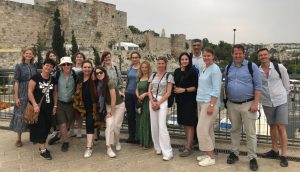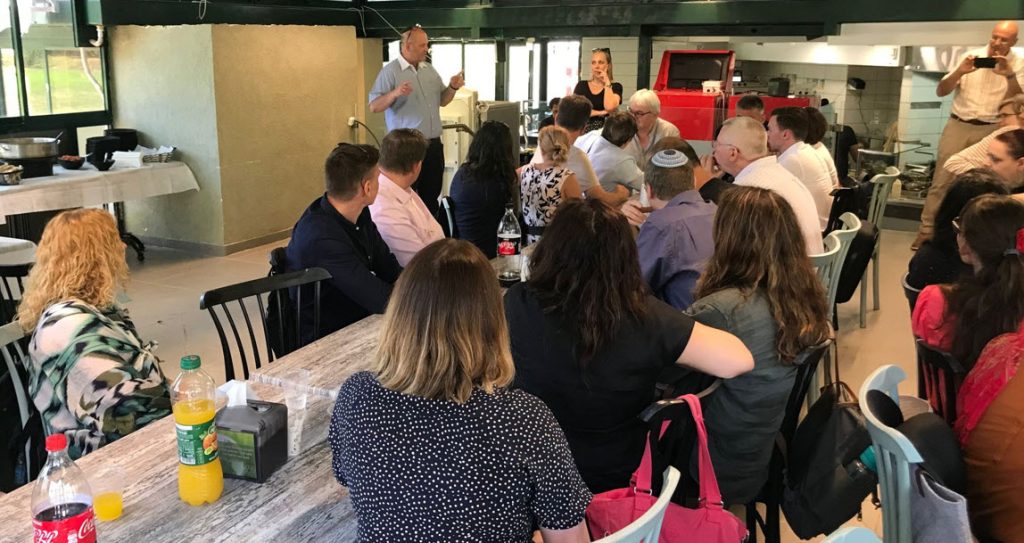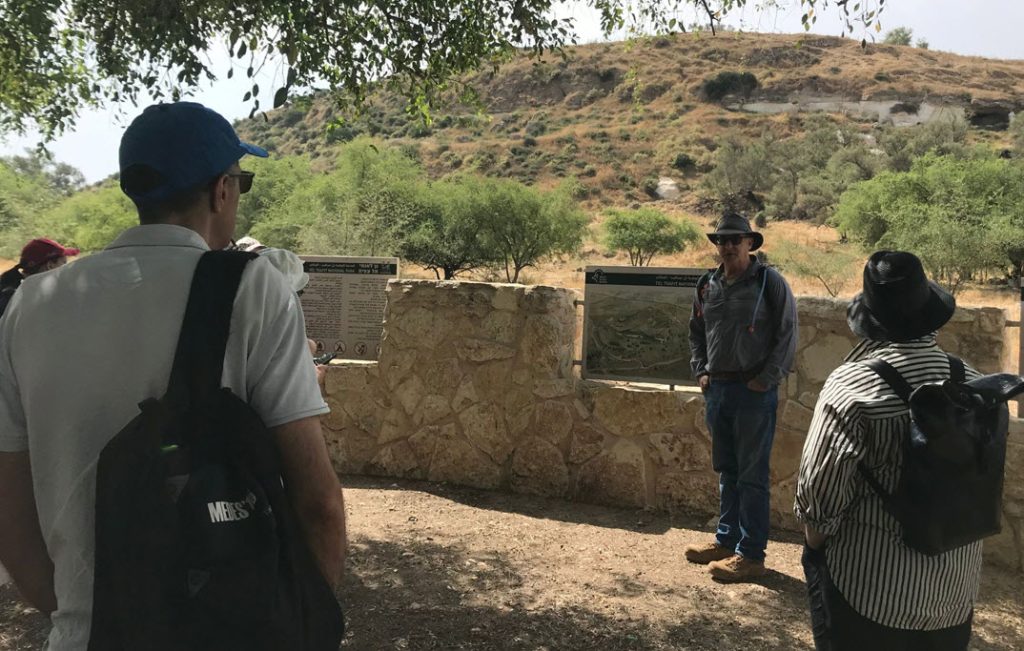Bar-Ilan University’s International School recently hosted its annual International Partners’ Week, which attracted 40 academics and staff members from 11 universities in 10 European countries, including Mendel University in Brno, Czech Republic; Ca’ Foscari University Venice, Italy; University of Bucharest, Romania; and Vilnius University, Lithuania, among others.
The main aim of the conference was to build bridges between the universities, strengthen the partnerships already created, and discuss new collaborations between faculties and departments.

Delegates were taken on a tour of Jerusalem during the International Partners’ Week
The delegates who attended the conference came from Bar-Ilan’s partner universities in Europe. The event was made possible through grants provided by the European Union’s Erasmus+ (Erasmus Plus) program.*
Innovation Goes Hand-in-Hand with Collaboration
Asked why they believe it’s important to partner with other universities on research, faculty and student mobility, academic degrees, and other programs, delegates were all in agreement that collaboration resulted in innovative ideas and groundbreaking discoveries.
“Collaboration allows universities to pool their expertise, resources, and research capabilities. By partnering with other institutions, universities can leverage diverse perspectives, share knowledge, and engage in collaborative research projects,” said Dr. Stephanie Nestawal, Head of the Centre for Applied Research and Innovation for Lifelong Learning and Deputy Head of the Department for Continuing Education Research and Educational Technologies at the University for Continuing Education Krems in Austria. “This fosters innovation, expands the scope of research, and leads to the generation of new knowledge and discoveries.
“Each university has its unique strengths and areas of expertise. Collaborating with other universities allows institutions to leverage these complementary strengths. By combining different disciplinary perspectives and expertise, universities can tackle complex problems, develop interdisciplinary programs, and deliver comprehensive solutions. Such collaborations enable institutions to enhance their academic offerings and address societal challenges more effectively,” Dr. Nestawal said.

Presentations were given by various Bar-Ilan University professors representing different departments
According to Agnieszka Kopczynska, International Relations Coordinator in the Faculty of Medicine at the University of Strasbourg, France, international partnerships bring multiple benefits to the universities on many levels, but they can all be attributed to connecting people.
“Joint research fosters exchange of academic ideas and collaborations, and grants access to diversified facilities and expertise hubs, leading to faster and greater knowledge breakthroughs,” she said.
“Students who have the opportunity to travel via exchange programs broaden their skill sets, develop an understanding and appreciation of other cultures, and can therefore face their future careers with a global mindset.
“When staff members discover other institutions, which are all diverse in terms of history, size, organization, and more, they gain a better understanding of the cultural differences within workplaces, they share experiences, ideas, and best practices, which can only benefit them and their students,” said Ms. Kopczynska.

Delegates were treated to a guided tour of Tell es-Safi/Gath Archaeological Project by Prof. Aren Maeir of BIU’s Land of Israel Studies and Archaeology Department
“The gains are obvious,” agreed Maria Elisabeth Höwer, Doctoral Researcher and holder of a doctoral scholarship at the Bavarian Research Center for Interreligious Discourses at Friedrich-Alexander-Universität Erlangen-Nürnberg in Germany.
“Co-operation leads to inspiration and inspiration to even more co-operation. I believe that international co-operation on a scholarly level is an important way to increase research quality, and I would also like to encourage students to explore the numerous opportunities of international exchange that are open to them during their time of university study,” she said.
* Erasmus+ combines all the EU’s current schemes supporting education, training, youth, and sport in Europe. It was started in January 2014. The original program, established in 1987, focused only on student exchange and was known as the Erasmus Programme (EuRopean Community Action Scheme for the Mobility of University Students).
Since 2014, Erasmus+ has offered mobility and cooperation opportunities in higher education, vocational education and training, and adult education, among other areas.
If you’re interested in visiting Bar-Ilan University, please email [email protected] or call +972-3-738-4245. If you would like to find out more about our faculty or student mobility program, please email [email protected] or call +972-3-738-4721.
You can also click the links below to find out more about the various centers and startup incubators.
BIU’s Research Centers
Institute of Nanotechnology and Advanced Materials (BINA)
Gonda Multidisciplinary Brain Research Center
Begin-Sadat Center for Strategic Studies (BESA Center)
HaLev: Center for Simulation in Education
EnICS: Emerging Nanoscaled Integrated Circuits and Systems Labs
Robotics and Artificial Intelligence
Natural Language Processing (NLP) Lab
Center for Research in Applied Cryptography and Cyber Security
Tell es-Safi/Gath Archaeological Project
BIU’s Entrepreneurship Centers
Contact Us for More Info
Leave your details and we’ll get back to you soon

